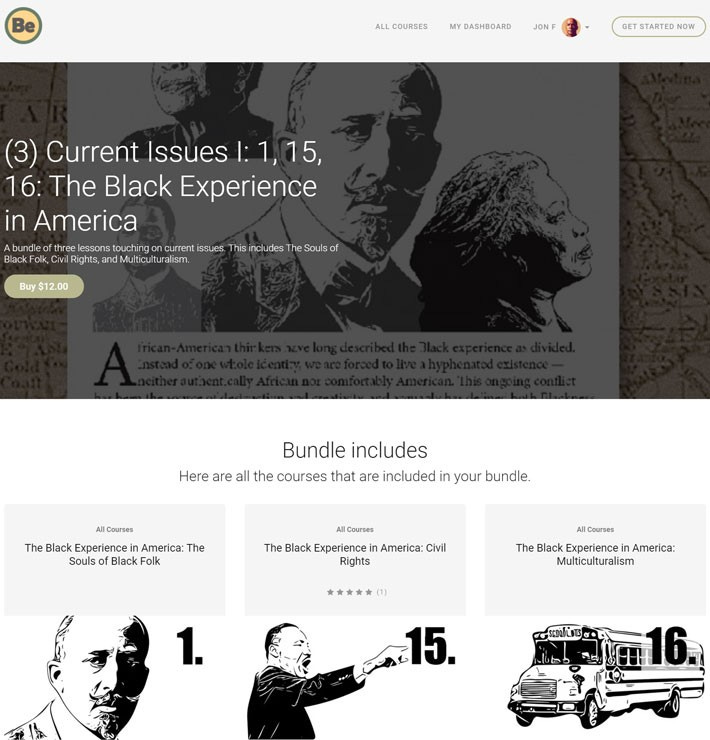TechCheck: The New Show on CNBC, and My Own Evolution As A Tech Anchor and Reporter
I've been on vacation, so there was no newsletter last week. And as I sit in my home office typing this one, I'm looking ahead to a big event: The launch of our new show brand on CNBC, TechCheck. It's at 11 a.m. ET, like Squawk Alley was. It's a show about tech, like Squawk Alley was. So what's the difference?
In this newsletter I'll lay out my own thoughts and intentions about TechCheck. I'm approaching this from a personal perspective; I'm part of a team, but here I'm sharing how this fits into my own career journey.
A Career on the Edge
First, some quick background: I've been covering tech in some form for most of the past 22 years, at the Lexington Herald-Leader and San Jose Mercury News, Business 2.0 and Fortune magazines, and then CNBC. (I took a couple of years off at the Merc covering education, editing local news and personal finance, and building digital products.) My tech reporting career began just before the dotcom bust, and has allowed me to expand from covering consumer tech to enterprise, cloud, and everything in between.
Over that period, technology has been both my work's lifeblood and my industry's nemesis.
My career has survived in part because of timing: I was assigned the Apple beat in 2000 at the best possible moment, days before Steve Jobs declared at MacWorld that he would stay with the company as CEO. Weeks later, Adobe founders John Warnock and Chuck Geschke invited me to headquarters to introduce Bruce Chizen and Shantanu Narayen as the next-generation leaders of the company.
At the same moment, the Internet was dismantling the business model for local journalism. National and classified advertising evaporated as Craigslist, eBay and Yahoo introduced new ways to buy and sell used items, find a job or clip a coupon. Waves of buyouts and layoffs slammed the publications where I worked. My only hope to stay employed and relevant was to learn voraciously. I learned about tech — about industrial design and supply chains, Moore's Law and Metcalfe's Law, Web 2.0 and cloud computing, databases and DevOps — but I also learned about making things. I learned HTML, CSS, graphic design, photo and video editing, audio editing, podcasting, editing for newspapers and editing for magazines. I learned to appear on camera as a guest, then as a reporter, then as an anchor. I learned to moderate events and steer long-form interviews.
The State of Tech
Which brings us to today. As we haltingly emerge from a pandemic, the technology world is scrambling in a moment of peril and opportunity. Amazon, Apple, Facebook and Google have powerful platforms and dominant business models that both enrich and threaten neighbors (and governments). Startups can grow at unprecedented velocity — and so can cyber threats. Small businesses need a radical shift toward technology-driven processes to survive and thrive in a post-pandemic world, and workers need upgraded skills and safety nets to make that same transition. The technology stakes are enormous, both for global powers and family budgets, but there's too little good information about it all.
Meanwhile, the disruption of journalism continues. In tech, dozens of promising brands have risen and fallen, leaving just a handful of survivors. Headlines are plentiful but insight is scarce. Depth is rare.
Authority and Modularity
Into this environment, we launch TechCheck. I have two priorities for my contributions to the brand: First, authority: We should tell people what the single most important tech story or theme of the day is, and why. Then, modularity: In 2021, TechCheck should exist as a cross-platform brand that is equally a citizen of the digital and broadcast worlds. I'll know we've succeeded if we have a loyal audience that engages with TechCheck deeply, comes to CNBC events, and is mostly unaware that TechCheck is also a one-hour show on TV.
This is going to mean engineering entirely new processes for how we do what we do. For me, that's the exciting part. I've already been doing some of this work for the past five years, as I've developed Fortt Knox — first as a podcast, now as a video-driven brand that lives primarily on LinkedIn. Fortt Knox aims for analysis, engagement and a deep exploration of innovation, management and leadership. You see it in long-form interviews with CEOs and founders, curated video insights, and newsletters. Now you'll see more of Fortt Knox in TechCheck.
You'll also see a depth in TechCheck's digital content that we haven't brought you before. It's going to be fun. Get an early jump by following the TechCheck LinkedIn page here. And let me know what you think of our first week.
Many readers of this newsletter will be familiar by now with my latest project: The Black Experience in America: The Course. I designed it last year after the tragic killing of George Floyd, and I'm building out an online learning experience based on the content.
The students and alumni of my alma mater, DePauw University, gained access to the course material last month. I'm looking forward to more collaborations that lead us to a deeper understanding of this moment in history, the ideas that got us here and the work to move forward.
If you're interested in exploring the same material, a bundle of three lessons is available for purchase here for $12.




